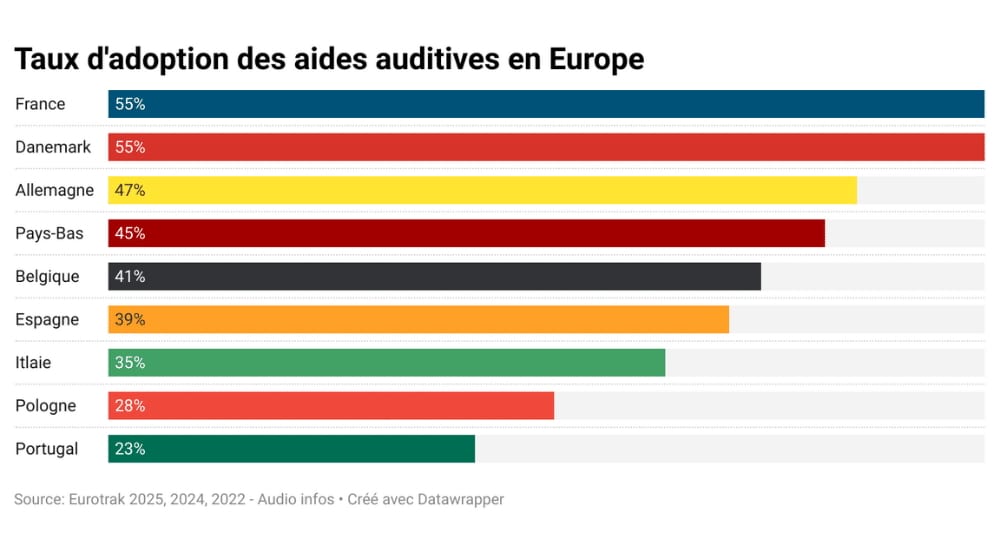Manufacturer survey returns picture of UK in denial, embarrassment, and ignorance over hearing loss
surveys
One third of 2,000 Brits who participated in a new survey by Oticon admitted to knowing someone who is in denial of their hearing loss.

The study by the expert Danish multinational hearing aid brand found that 40% of respondents think that one of their parents has become hard of hearing but is unwilling to admit to a problem. Over a quarter feel the same about a friend, while 18% have a colleague who they believe is not recognising that they are struggling to hear.
A touchy subject
More than seven in ten of those surveyed that know someone they believe is in denial of hearing loss have communicated concern to their loved ones. The research also records that 47% have "very directly" told their loved ones that they think they have hearing loss. Forty-one percent regularly point out the signs of poor hearing their loved ones display, but 37% prefer a less direct approach and simply give subtle hints.
The taboo surrounding hearing loss in the UK is still very present, this Oticon research suggests. Almost a quarter of those that haven’t expressed their concerns to a loved one who has bad hearing choose not to because they don’t feel comfortable to do so. A huge 42% believe they would not be paid any attention if they did so.
The effect on relationships
The research reveals the impact on relationships for those working, living, and socialising with someone that is likely in denial of poor hearing. Over a third say that they are either frustrated with not being heard or fed up with having to repeat themselves. Another 21% feel ‘embarrassed’ by the hearing loss symptoms that their friends, colleagues or loved ones display, such as regularly asking people to repeat themselves, or not being able to follow conversations.
A quarter find it easier to avoid conversations with the person that is having hearing trouble. Another quarter say that their loved one’s hearing loss leads to arguments on the subject.
Lack of awareness
Thomas Behrens, Oticon’s Chief Audiologist and Senior Director of Centre for Applied Audiology Research explained: “The impact on relationships is certainly a concern. Tackling hearing loss as soon as possible can alleviate many of the negative consequent effects and is particularly important for reducing or avoiding the adverse impact on health and quality of life that living with hearing loss can have.”
The research also shows low awareness of the health problems that can derive from hearing loss. Of the 2,000 respondents, less than 20% realise that untreated hearing loss can age the brain and change the way it functions. Only around half know that living with hearing loss can lead to social isolation and less than half know that hearing loss can increase the risk of depression.
Brits willing to put up with hearing loss
Over a third of respondents that haven’t been professionally diagnosed with hearing loss say that they have problems hearing. Of those, 81% have not sought advice or treatment. Mostly, they are willing to wait until their hearing loss affects their quality of life or gets worse than it is now. ˝Worryingly," says Oticon, "25% have no plans to seek treatment".
“Potentially, millions of Brits don’t realise that they have hearing loss, or don’t want to admit it, but it is crucial to support a hearing problem as it could just help avoid the consequences for your health and help improve relationships. If poor hearing is affecting relations with loved ones, that is a very clear sign that it is time to take action,” affirmed Thomas Behrens.
Source: Oticon



